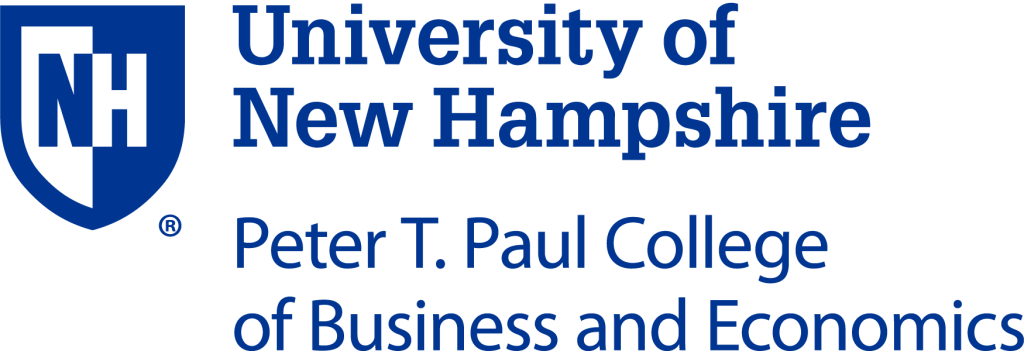The Top 5 MBA Programs in New Hampshire

New Hampshire is a relatively small state. It has a 1,415,656 population and a GDP of $83.7 billion. Despite its small size, New Hampshire managed to earn a good reputation. It’s one of the smartest and most educated cities in the United States.
Although New Hampshire may offer fewer networking and job opportunities than other major US states like New York, Los Angeles, and California, it has a relatively lower unemployment rate. New Hampshire’s unemployment rate has stayed below the national average throughout 2023. The state may have a small labor force, but it’s robust.
A lot of people thinking of relocation also often consider New Hampshire. New Hampshire is among the most affordable states to live in when considering the median home price, average household income, housing costs, grocery costs, utilities, inflation, and state income taxes. It’s also one of the safest and most scenic places in the United States.
When it comes to higher education, the state doesn’t disappoint. It houses one of the eight Ivy League schools, Dartmouth College.
New Hampshire’s higher education consists of six public and twelve private institutions, giving college students various options to advance their education. NH private schools are more popular for offering low and affordable tuition fees than their counterparts nationwide. However, public colleges in the state cost 36.95% more than the national average.
With New Hampshire’s affordable living, low unemployment rate, and vast options for higher education, it has attracted a lot of non-residents to contribute to the state’s economy. Those looking to advance their professions and aspiring business leaders will gain priceless insights into this dynamic region’s educational environment.
If you’re interested in an MBA in New Hampshire, here are five of the best programs in the state. Accredited business schools offer these MBAs. Qualified students can expect a rigorous and engaging learning experience with various opportunities to grow and develop personally and professionally.
Top 5 MBA Programs in New Hampshire
Tuck School of Business – Dartmouth College

Dartmouth College is a highly prestigious educational institution. It is among the eight Ivy League schools and one of the colleges founded before the Revolutionary War. Instead of two semesters, Dartmouth is the only Ivy League that uses the quarter system, with four 10-week quarters. Dartmouth offers strong liberal arts, engineering, computer science, and business education programs.
Dartmouth’s Tuck School of Business is a highly competitive AACSB-accredited school for talented and competitive students only. Accepted applicants in the business schools had an average GPA of 3.49 and were at the top of their graduating classes. Tuck offers several business education programs, including:
Tuck MBA program’s core curriculum focuses on developing functional skills for leaders. Graduates will have efficient decision-making, data analysis, and leadership vision execution thanks to the MBA’s analytics, corporate finance, and marketing focus.
This MBA program ranked highly in the US News and World Report ranking for the best MBAs. Most business schools waive the GMAT requirement. However, interested Tuck MBA applicants must take the GMAT and obtain a high score. The average GMAT score accepted into the program is 726.
Southern New Hampshire University

Southern New Hampshire University is a dominant and pioneering institution in online learning. It offers more than 300 academic programs with an enrollment of over 170,000 online students and 3,000 on campus. With inclusivity being its top objective, SNHU offers qualified students affordable tuition fees and flexible scheduling.
SNHU’s business school offers various specialized business education programs. Among its top programs is the ACBSP-accredited MBA, which can be completed in two formats:
Students in the SNHU OMBA program can accelerate coursework and graduate in less than a year. Those holding down full-time jobs can have a more flexible schedule and pursue the program part-time. SNHU MBAs accepts students with and without business education and professional backgrounds. However, those without business history must complete one or two foundation courses, seven core courses, one elective course, or a 3-course concentration.
Moreover, the SNHU MBA offers 17 concentration courses. Sample concentrations include Engineering Management, Information Technology Management, Sport Management. and Sustainability and Environmental Compliance.
Peter T. Paul – College of Business and Economics (at the University of New Hampshire)

The University of New Hampshire is a flagship institution of the UNH System. It is committed to providing students—residents and non-residents—with affordable and valuable higher education. It boasts a 94% continuing education and job placement rate, making it highly preferred by students who want to ensure high ROI.
UNH has eleven colleges offering over 200 degree programs in various fields. One of its top-ranked colleges is the Paul College of Business and Economics, a known nesting ground for aspiring business leaders. Paul College offers a respected MBA program that fosters flexibility and growth. Qualified students can pursue the MBA in various formats:
The Paul MBA is accredited by the AACSB. Regardless of which format students choose, they’ll have the same opportunities. All Paul MBA students will have access to six concentration options or create their own concentration. The Full-Time MBA, however, offers a unique international experiential learning opportunity.
Rivier University

Rivier University is an affordable private Catholic university. It is a highly-rated institution known for its student services and resources. Rivier offers an engaging, hands-on academic experience with faculty, regardless of the level of study.
Rivier has five divisions, including one for Business and Security Studies. This department collaborates with various community leaders in developing academic programs and initiatives that prepare graduates for the modern workforce. MBA seekers have various concentration opportunities in the department:
- MBA in Cybersecurity Leadership
- MBA in Healthcare Administration
- MBA in Information Technology Management
- MBA in Management
- MBA in Marketing
Rivier also offers a BS in Business/MBA 4+1 designed for bachelor’s students. Students will be connected with professionals and companies affiliated with the Department of Business and Security Studies. This unique opportunity provides students with theoretical knowledge and real-world exposure, fostering a seamless transition from academia to the professional realm.
College of Business – Franklin Pierce University

Franklin Pierce University is another affordable private university in New Hampshire best known for its health service studies, business, and accounting offerings. It’s a small institution that fosters a close, tight-knit learning environment. Despite its size, Franklin Pierce offers vast opportunities for students to engage in hands-on experiences and research projects.
Franklin Pierce only has three colleges. Its College of Business offers students a convenient pathway toward a high-quality business education. Students can complete their MBAs online and can choose to focus on one of the following courses:
- Accounting
- Energy and Sustainability
- Healthcare Administration
- Human Resource Management
- Leadership
- Sports and Recreation Management
The IACBE accredits the Franklin Pierce MBA. The core curriculum of the MBA program teaches students the operations of a successful company. Each concentration will require students to complete a capstone project tailored to their fields.

Frequently Asked Questions
Is an MBA career in New Hampshire a good idea?
Yes. Pursuing an MBA degree and a career in New Hampshire has many benefits. The average annual salary of MBAs in New Hampshire is $159,994, with top earners earning as high as $234,374. While the average wage of NH MBAs falls slightly below the national average, professionals can still enjoy a comfortable living thanks to NH’s low cost of living.
What are the top industries in New Hampshire?
The key industries in New Hampshire are Advanced Manufacturing, Life Science, Technology, and Tourism/Hospitality. Aligning your MBAs with the NH’s top industries gives you a strategic advantage for career opportunities and business success.
What are the admission requirements for an MBA in New Hampshire?
The specific admission requirements vary. Competitive institutions like Dartmouth College require applicants to achieve high academic excellence- high GPAs and GMAT scores -and present a strong application package. On the other hand, less competitive business schools have more lenient admission criteria and often waive the submission of standardized test scores.
The general admission requirements for an MBA in New Hampshire are:
- Letters of recommendation
- At least two years of professional experience
- Resume/Curriculum Vitae (CV)
- Undergraduate transcripts
- Interview (in some cases)
What makes New Hampshire attractive for business owners?
New Hampshire provides low-interest loans and tax exemptions, among other incentives for entrepreneurs, and features a competent labor force and robust infrastructure. With these advantages, New Hampshire’s economy is expected to attract more business owners. As a result, demand for more business professionals will grow.
Before you go, see the following:
- The Top MBA Programs in Maryland
- The Top MBA Programs in Connecticut
- Best Online MBA in Accounting Management Schools